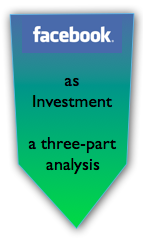10 Detailed Case Studies + Big Data & Analytics’ New Digital Divide + How to Think Like a Data Scientist Book Review: Numbers Rule Your World/Kaiser Fung
 [UPDATED] Step inside a data scientist’s mind, and learn why probability is the key to profit and how it’s the key to understanding and using big data for better decision making. This fascinating and useful book clearly shows how people misunderstand probability and misuse statistics—and therefore big data—and how the knowledge gap leads to faulty models, thinking and decisions. New winners and losers are emerging in the digital social and big-data age. A new digital divide, people who think like data scientists and use probability to support decision making—and everyone else. The data science group will outperform, and Fung shows how creative, fun and useful data science is. [UPDATED] Step inside a data scientist’s mind, and learn why probability is the key to profit and how it’s the key to understanding and using big data for better decision making. This fascinating and useful book clearly shows how people misunderstand probability and misuse statistics—and therefore big data—and how the knowledge gap leads to faulty models, thinking and decisions. New winners and losers are emerging in the digital social and big-data age. A new digital divide, people who think like data scientists and use probability to support decision making—and everyone else. The data science group will outperform, and Fung shows how creative, fun and useful data science is.
This book is a perfect twin to Duncan Watts’ Everything Is Obvious* Once You Know the Answer, which exposes how common sense pervades management decisions and failure. I shall refer to several specific connections between […]
How Brands Cut Their Exposure to Facebook Business Risk shows how brands can reduce the risks of depending on Facebook too much.

In the Facebook As Investment trilogy, I have analyzed several dimensions of investing in Facebook and raised my doubts about the company’s management and direction. In Part Three, I’ll address how brand executives can insulate themselves from Facebook’s—or any platform’s—fortunes by moving to make their relationships and networks portable. By making and managing investments carefully, brands’ relationships will endure regardless of platforms’ destinies.
By the way, Part One examined how Facebook’s trust gap would make it difficult for Facebook to fully monetize its considerable assets. Part Two analyzed Facebook as a social platform and revealed that it had no competitive threats from other pureplays; rather, the risk was that the whole pureplay category would lose its dominance in 3-5 years.
[…]
 My predictions from the 1990s and beyond about the disruption of “careers” and “work” have been coming true at an increasing pace, so here I’ll offer a quick retrospective of key trends as well as numerous how-to resources for using these disruptions to your advantage. Disruptions change the rules. Although most people don’t like “the rules” at times, we all take comfort in them because we have a clue about how to manage and get what we want. No one likes to feel clueless, but that’s how disruption causes most people to feel, so they try to avoid it. However, by facing the world head on and understanding the profound economic and social changes that are happening, you can see where the proverbial puck will be and skate there before most other people. Let’s go! My predictions from the 1990s and beyond about the disruption of “careers” and “work” have been coming true at an increasing pace, so here I’ll offer a quick retrospective of key trends as well as numerous how-to resources for using these disruptions to your advantage. Disruptions change the rules. Although most people don’t like “the rules” at times, we all take comfort in them because we have a clue about how to manage and get what we want. No one likes to feel clueless, but that’s how disruption causes most people to feel, so they try to avoid it. However, by facing the world head on and understanding the profound economic and social changes that are happening, you can see where the proverbial puck will be and skate there before most other people. Let’s go!
[…]
 This Executive’s Guide to Blogging offers executives a pragmatic, conservative approach to blogging. For years, now, I have beseeched all the executives and “knowledge workers” I know (that’s thousands) to blog, so please consider this as part of that campaign—with benefits (because this is a how-to post). Here’s why: In the Knowledge Economy’s pervasive digital networks, you are invisible unless you come across people’s screens regularly. And, while you are invisible, your potential business partners are seeing people who do flit across their screens. If you aren’t there, you are in a bloody ocean that gets smaller every year. Don’t stay in, the water is not fine. Please understand that I’m stating this as a simple fact. I’m sure you’ve read books like The Long Tail, which describe how we are all publishers now, that is, those of us who decide to use the free tools at our disposal. This Executive’s Guide to Blogging offers executives a pragmatic, conservative approach to blogging. For years, now, I have beseeched all the executives and “knowledge workers” I know (that’s thousands) to blog, so please consider this as part of that campaign—with benefits (because this is a how-to post). Here’s why: In the Knowledge Economy’s pervasive digital networks, you are invisible unless you come across people’s screens regularly. And, while you are invisible, your potential business partners are seeing people who do flit across their screens. If you aren’t there, you are in a bloody ocean that gets smaller every year. Don’t stay in, the water is not fine. Please understand that I’m stating this as a simple fact. I’m sure you’ve read books like The Long Tail, which describe how we are all publishers now, that is, those of us who decide to use the free tools at our disposal.
Blogging is 21st century thought leadership, which is table stakes in the Knowledge Economy. Your thoughts represent and “scale” you, so they help you to connect with people with whom […]
 Facebook recently released a new control for Pages that acts like blogs’ pre-moderation setting: when a Page admin activates it, Likes’ (Fans’) “organic” posts will not appear on the Page’s Wall until an admin specifically approves them. Read on for how to decide whether to use this control with your Pages as well as my interpretation of how the new control helps to reveal Facebook’s emerging business strategy to maximize the impact of its IPO. Facebook recently released a new control for Pages that acts like blogs’ pre-moderation setting: when a Page admin activates it, Likes’ (Fans’) “organic” posts will not appear on the Page’s Wall until an admin specifically approves them. Read on for how to decide whether to use this control with your Pages as well as my interpretation of how the new control helps to reveal Facebook’s emerging business strategy to maximize the impact of its IPO.
[…]
Executives need to get on Twitter so they can understand the potential and the threat to their communications with stakeholders. The problem is, the value proposition isn’t clear, and executives perceive it takes too much time to learn. These free online courses fill that gap. […]
How Facebook can fix its lame “Friend Suggestions” feature—while tripling the value to members (users). How Members can increase their ability to meet qualified new people on Facebook. […]
Quick launch guide to blogging for executives and professionals: get online with WordPress or Blogger in about an hour: how to pick a blog platform, write your first post, configure antispam and manage and grow. Tips on content strategy and using categories and tags. […]
Why most people benefit from using LinkedIn and Facebook together to accelerate their business relationships: Key pointers on how to get started. […]
How to avoid lame updates on Facebook – debunking Wall Street Journal article […]
|
|
 [UPDATED] Step inside a data scientist’s mind, and learn why probability is the key to profit and how it’s the key to understanding and using big data for better decision making. This fascinating and useful book clearly shows how people misunderstand probability and misuse statistics—and therefore big data—and how the knowledge gap leads to faulty models, thinking and decisions. New winners and losers are emerging in the digital social and big-data age. A new digital divide, people who think like data scientists and use probability to support decision making—and everyone else. The data science group will outperform, and Fung shows how creative, fun and useful data science is.
[UPDATED] Step inside a data scientist’s mind, and learn why probability is the key to profit and how it’s the key to understanding and using big data for better decision making. This fascinating and useful book clearly shows how people misunderstand probability and misuse statistics—and therefore big data—and how the knowledge gap leads to faulty models, thinking and decisions. New winners and losers are emerging in the digital social and big-data age. A new digital divide, people who think like data scientists and use probability to support decision making—and everyone else. The data science group will outperform, and Fung shows how creative, fun and useful data science is.

 My predictions from the 1990s and beyond about the disruption of “careers” and “work” have been coming true at an increasing pace, so here I’ll offer a quick retrospective of key trends as well as numerous how-to resources for using these disruptions to your advantage. Disruptions change the rules. Although most people don’t like “the rules” at times, we all take comfort in them because we have a clue about how to manage and get what we want. No one likes to feel clueless, but that’s how disruption causes most people to feel, so they try to avoid it. However, by facing the world head on and understanding the profound economic and social changes that are happening, you can see where the proverbial puck will be and skate there before most other people. Let’s go!
My predictions from the 1990s and beyond about the disruption of “careers” and “work” have been coming true at an increasing pace, so here I’ll offer a quick retrospective of key trends as well as numerous how-to resources for using these disruptions to your advantage. Disruptions change the rules. Although most people don’t like “the rules” at times, we all take comfort in them because we have a clue about how to manage and get what we want. No one likes to feel clueless, but that’s how disruption causes most people to feel, so they try to avoid it. However, by facing the world head on and understanding the profound economic and social changes that are happening, you can see where the proverbial puck will be and skate there before most other people. Let’s go! This Executive’s Guide to Blogging offers executives a pragmatic, conservative approach to blogging. For years, now, I have beseeched all the executives and “knowledge workers” I know (that’s thousands) to blog, so please consider this as part of that campaign—with benefits (because this is a how-to post). Here’s why: In the Knowledge Economy’s pervasive digital networks, you are invisible unless you come across people’s screens regularly. And, while you are invisible, your potential business partners are seeing people who do flit across their screens. If you aren’t there, you are in a bloody ocean that gets smaller every year. Don’t stay in, the water is not fine. Please understand that I’m stating this as a simple fact. I’m sure you’ve read books like The Long Tail, which describe how we are all publishers now, that is, those of us who decide to use the free tools at our disposal.
This Executive’s Guide to Blogging offers executives a pragmatic, conservative approach to blogging. For years, now, I have beseeched all the executives and “knowledge workers” I know (that’s thousands) to blog, so please consider this as part of that campaign—with benefits (because this is a how-to post). Here’s why: In the Knowledge Economy’s pervasive digital networks, you are invisible unless you come across people’s screens regularly. And, while you are invisible, your potential business partners are seeing people who do flit across their screens. If you aren’t there, you are in a bloody ocean that gets smaller every year. Don’t stay in, the water is not fine. Please understand that I’m stating this as a simple fact. I’m sure you’ve read books like The Long Tail, which describe how we are all publishers now, that is, those of us who decide to use the free tools at our disposal.